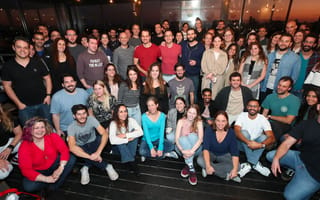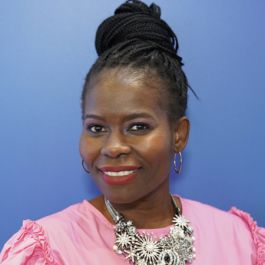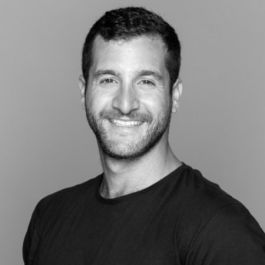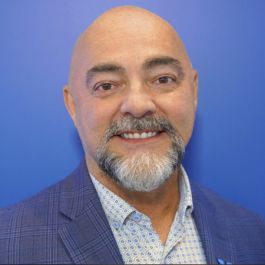Molly Madziva knew she wanted to join Viz.ai when she saw the core value, “kindness wins.”
“As a Black child born and raised in Zimbabwe, I didn’t have any civil liberties growing up,” said Madziva, now Viz.ai’s senior director of global clinical affairs. “And one of the things I learned was that anything can be changed once people are kind to one another.”
Daniel D’Amour’s experience as a stroke program manager and stroke-certified nurse led him to Viz.ai with a clear mission. “My singleness of purpose was to improve stroke care at the highest level,” he said.
Meanwhile, Dor Zmora came to the healthtech startup seeking a more dynamic work environment after working for a large company in the telecommunications industry.
“My goal is to have a tangible impact on where I work, feel the impact of what I’m doing and do work that I’m really proud of,” he said.
Though each person came to Viz.ai from a different background, Madziva, D’Amour and Zmora all found an environment supportive of their career journey and growth.
Viz.ai’s New Vision for Healthcare

Madziva has traveled to conferences across North America, and has the opportunity to connect with clinicians and experts who can help her push stroke care and technology ahead.
D’Amour’s journey took him from a clinician-facing role as a customer success manager to supporting his colleagues as a senior field enablement trainer.
And for Business Operations Manager Zmora, the scale of his work and goals have only grown.
“I came in thinking I could really have an impact here or there on specific things,” he said, “but my ambitions have grown tremendously in terms of what I think I can do within this company.”
For Madziva, D’Amour and Zmora, a microcosm of Viz.ai’s holistic approach to professional development is their one-on-one process, which combines rigor and reflection to support individual growth.
Telling Your Own Story: One-on-ones as a Tool for Growth
“The one-on-one is a secret weapon,” Zmora told Built In. “You ask what issues you’ve noticed, what your role in them means and how you can personally make it better. You have to be accountable because the information isn’t coming from your manager — it’s coming from yourself. When you take that mindset and start applying that rigor into other things at work, it’s super powerful, personally and professionally.”
“When I first heard about the process, I thought, ‘Here we go. It’s an auditing tool.’ But it has become a godsend,” D’Amour agreed. “I use our one-on-one as a tool to keep myself honest. This process has allowed me to be accountable not only to my teammates, but to myself.”
Thorough problem-solving steps are only part of the one-on-one’s structure. The final key lies in acknowledging and articulating successes.
“We’re all excited about the process,” Molly Madziva, senior director of global clinical affairs said. “At the end of the year, I go back and see how much I did. Self recording teaches a person to take responsibility for telling their own story right about the things that they’re accomplishing, owning them and not being too shy to say, ‘I did that. That’s what I can do.’”
Acknowledging accomplishments is not restricted to self-recognition: Viz.ai leadership has also built a culture of recognition and support.
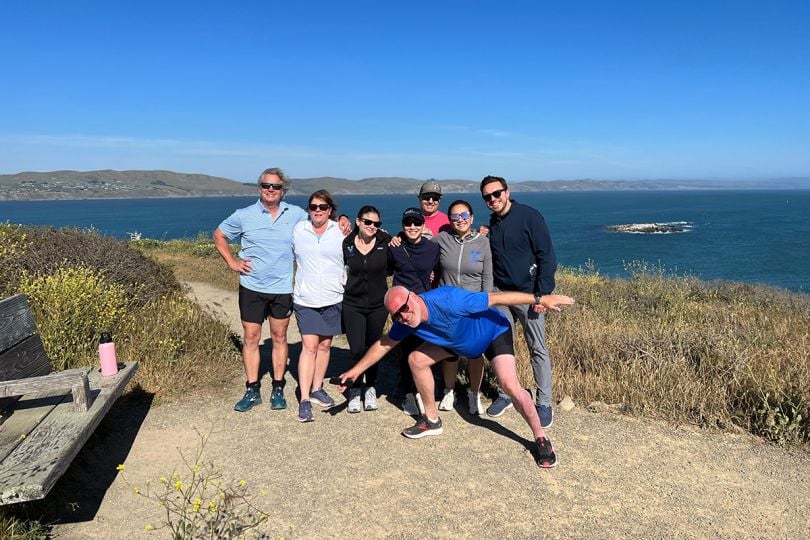
“What Can I Do?”: Building a Supportive Leadership Culture
After Madziva joined Viz.ai, she found her colleagues making a “concerted effort” to live up to the core values that had drawn her to the company — including CEO Chris Mansi.
While at a neuroscience conference in Canada, presenters were discussing women missing advancement opportunities due to a lack of support or because they aren’t given the room to excel.
According to Madziva, “Chris stood up and asked, ‘Well, what can I do for the women in my company?’ I wanted to tell everyone, ‘This is my boss! My boss’s boss!’ Leaders that really are curious about what more they can do allow a company to be successful.”
That support and drive for continual improvement has helped Madziva continue to flourish.
“Sometimes when you think about what managers can do for you, it may be just as simple as getting permission and being fully trusted in your role,” she said. “My leaders, including Chief Operating Officer Julie Skaff and Chief Clinical Officer Jayme Strauss, see something in me that I had not seen in myself, and it’s helping me to achieve even more than I anticipated. As a woman of color and an immigrant, finding myself in a position where I can really make a meaningful difference to clinical science is something I really take to heart.”
For D’Amour, the shift out of a clinical setting set him on a new path of professional growth, one that was also directly supported by Skaff and Strauss.
“I had planned to go back to school to become a nurse practitioner, but after joining Viz, I ended up getting my MBA,” he said. “Studying for an MBA without a business background was challenging, but Julie and Jayme mentored me through some of the toughest course requirements. Having real leaders means that you can confidently ask for help.”
The company’s structure and benefits also support D’Amour’s continued growth. After moving into his current role as a trainer, he used his learning and development stipend to enroll in a course designed to heighten his skills as an educator. This year, he is expanding his expertise even further.
“I am using the stipend to be certified as a neurovascular clinician, which will put more arrows in my quiver,” he said.
The trust and confidence Zmora received from his own managers has helped him grow — and also provided a model that he put to use with his own direct report.
“What I’ve really gotten was space to act. We’re not a small startup at this stage, but still, there is a feeling that if something needs to get done — go ahead and do it,” he said. “I have one report, and the main insight that I try to pass on is basically what I was given — the confidence to think and act independently. It’s not something you can teach. It’s something you can help them develop. I really try to provide the scaffolding for this. “
Pottery Class as Learning and Development


